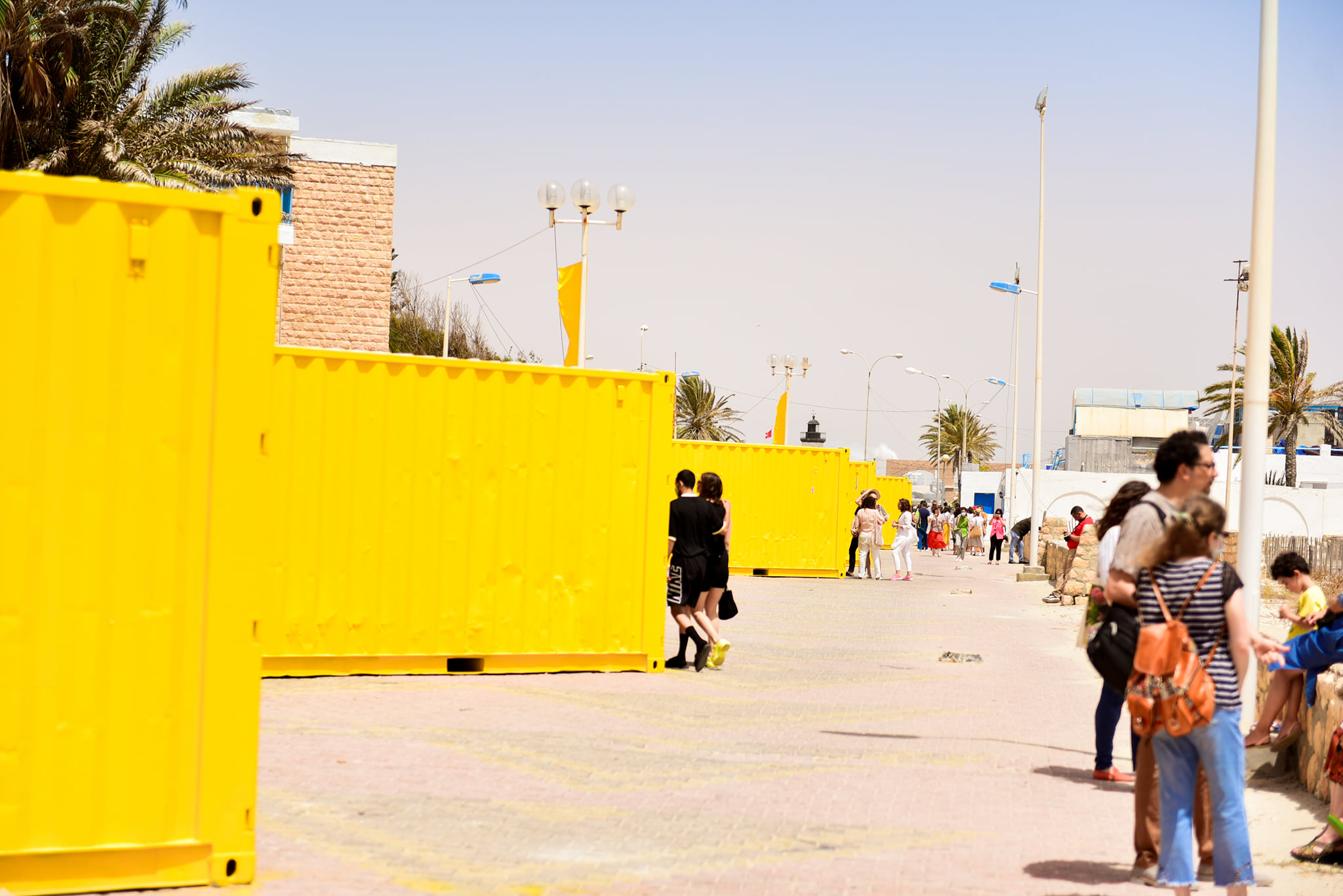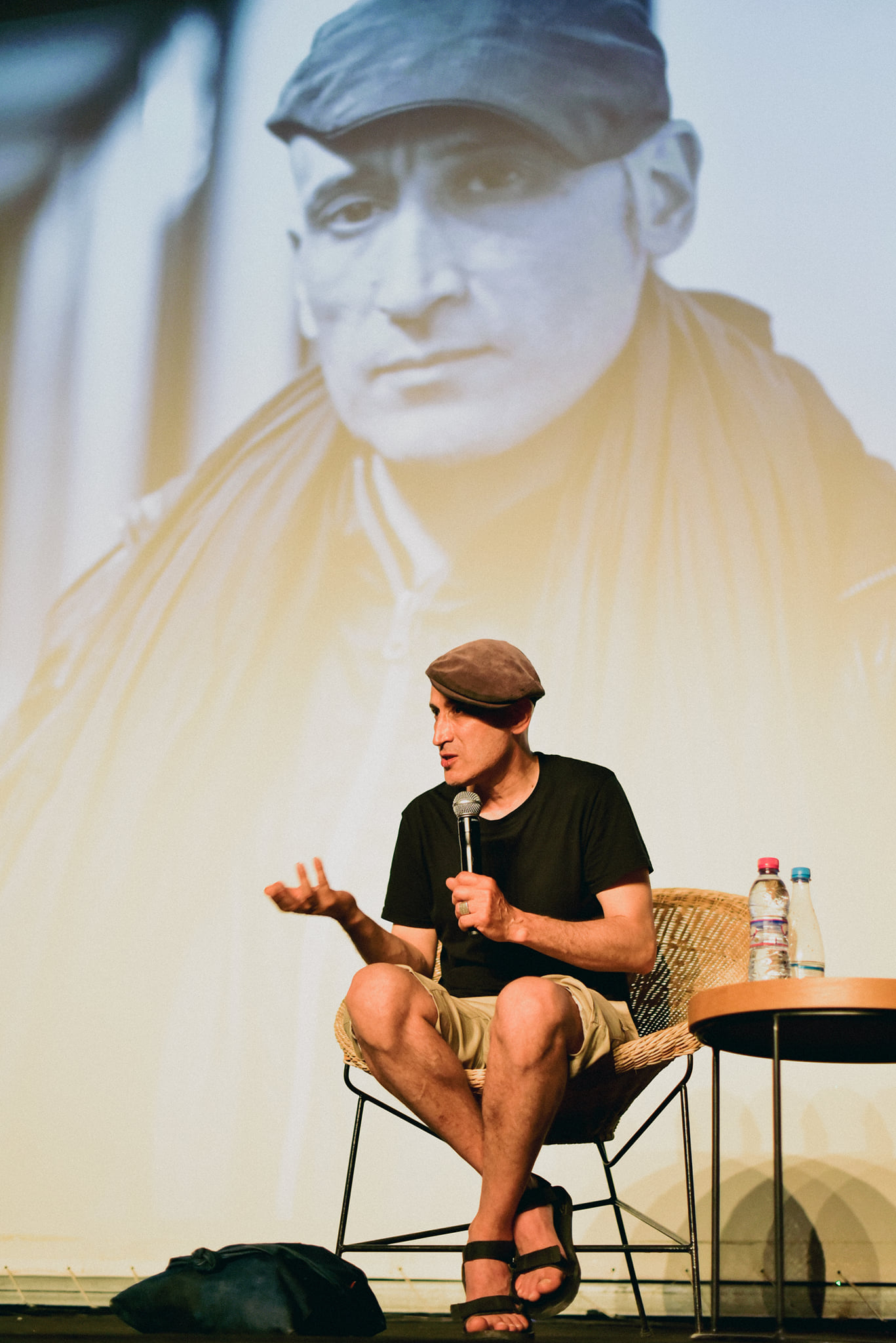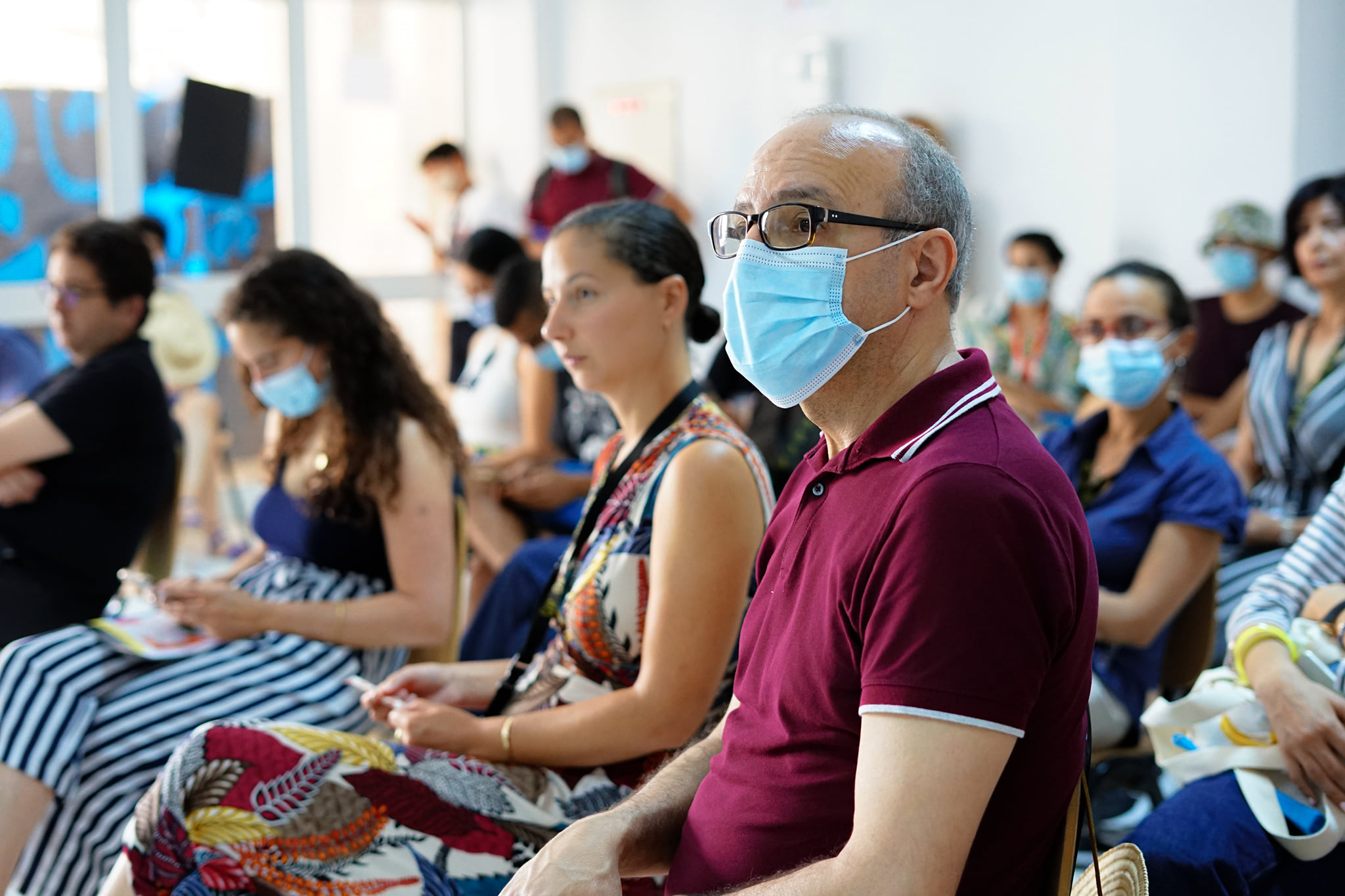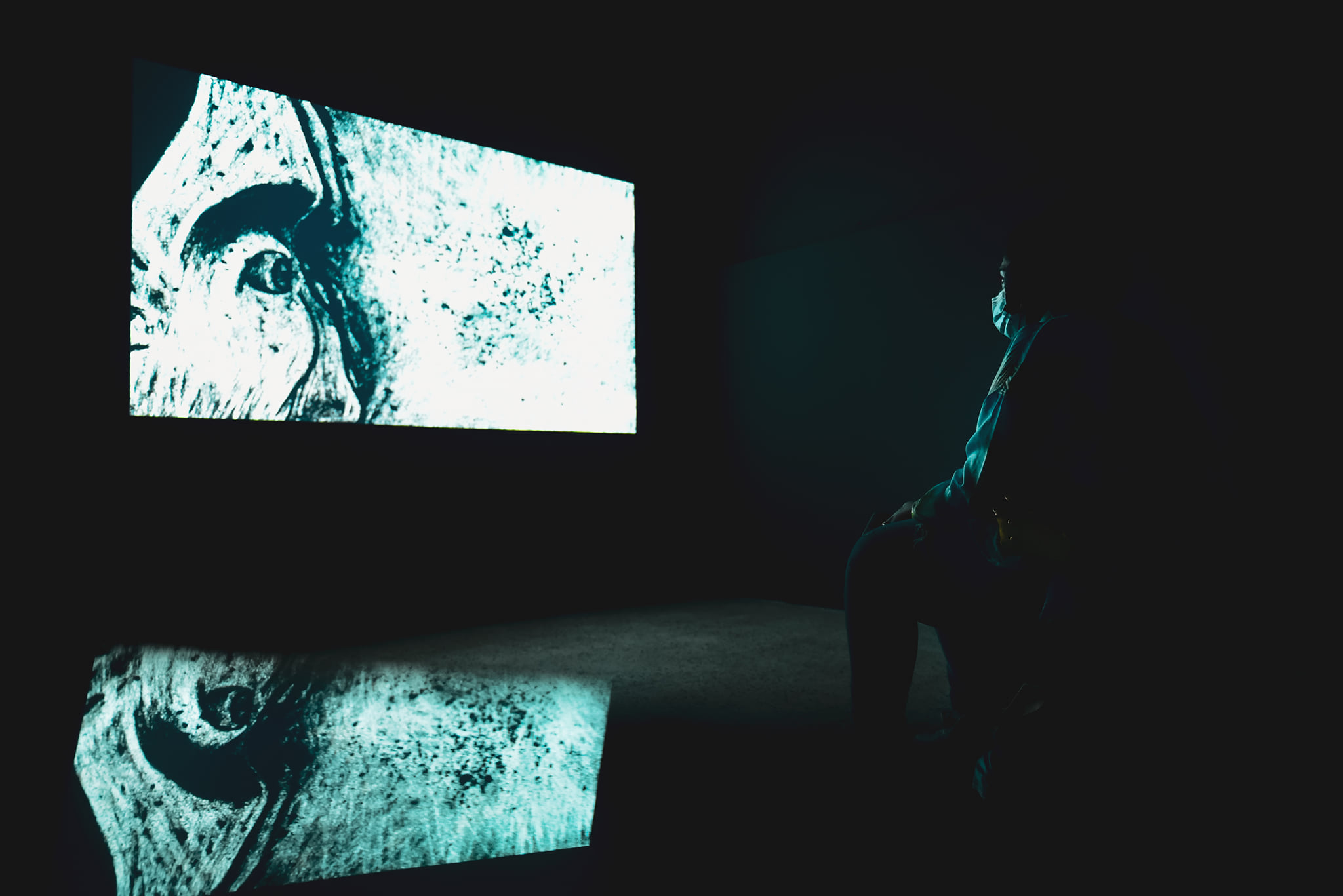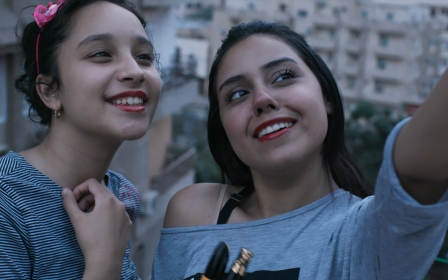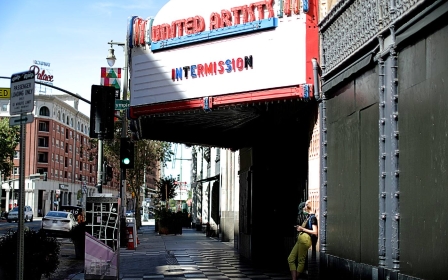Tunisia's Gabes film festival: Virtual reality, colonialism and Covid-19

For a country that has been hit hard by the pandemic in recent months, the bustling evening parties of Tunisia’s Gabes Cinema Fen festival (18-26 June) felt equally surreal and nostalgic - an exciting bubble bereft of the foreboding shadow of Covid-19.
In those daily parties, the pandemic felt like a thing of the past: no social distancing was maintained; no masks were donned; no strict hygiene orders were enforced in the open buffets. For a few merry days, it felt as if normalcy has been restored after a year and a half of devastating isolation.
This bubble would prove to be short-lived. Reality finally kicked when a Tunisian guest tested positive for Covid-19 two days before the conclusion of the festival. The unfortunate incident took place as infection rates across Tunisia began to soar, culminating in hospitalisation rates reaching a new peak. The nightly party held at the L’Oasis hotel turned eerily vacant, all remaining public screenings were scrapped, all indoor happenings were instantly terminated.
After the 2020 edition took place online, this was the year that Gabes was expected to take flight. In the end, however, the lingering spectre of Covid-19 once again proved too powerful.
New MEE newsletter: Jerusalem Dispatch
Sign up to get the latest insights and analysis on Israel-Palestine, alongside Turkey Unpacked and other MEE newsletters
After weathering the Covid-19 storm last year with an effective lockdown during the first wave, the Tunisian government’s handling of the pandemic this year has been less successful. The vaccination campaign has not picked up steam, hampered by the shortages that are commonplace across Africa.
For a country that has grappled with economic woes since the Jasmine Revolution of 2010, Covid-19 has proven to be a slippery opponent, wrongfooting a government torn between containing the virus and saving itself from financial ruin.
The coastal city of Gabes embodies many of Tunisia’s Covid-19-laced struggles. For years, the sixth largest city in the country has suffered from lack of support, and has become the most polluted city in Tunisia. Gabes stands as a grand site of ecological disaster, afflicted with rising infertility, widespread miscarriages, and the highest rates of cancer in the country. Tourism is low.
Against the backdrop of these challenges, the Gabes Cinema Fen festival is important for the underserved communities of the city, both economically and culturally.
Cutting edge art
Borne out of the short-lived Gabes Film Fest (2016-2018), Gabes Cinema Fen – which kicked off in 2019 –expanded the scope and breadth of what was a run-of-the-mill movie showcase into a grand art festival encompassing virtual reality (VR), video art, and installations.
In only two years, Gabes has flowered into one of the most important digital art festivals in the region. Festival director Fatma Cherif and film section programmer Ikbal Zalila have taken left-of-field choices with their curated programmes and discussions, opting for aesthetically daring films and cutting-edge art that render Gabes a wholeheartedly unique experience for the city’s deprived denizens and Arab art enthusiasts alike.
The sprawling program is patchy, abundant with debatable choices in both the selected films and topics of the panels, but there’s a sharp curatorial vision that justifies the rationale behind the overall lineup.
Most important of all, the festival – which is funded by various non-profit organisations, foreign culture centres, and private sponsors – has given Gabes a new life, briefly transforming it into an international meeting hub while subtly highlighting the environmental duress slowly eating the city up.
Through its myriad selection, Gabes has, perhaps unintentionally, posed a number of multifaceted questions facing Arab art today: the role of art in relation to its addressed community; the growing flimsiness of the post-colonial debate in relation to the production of Arab and African art, and the blurring line between genuine representation and exploitation.
A primary objective of the festival programming is to discover new and atypical aesthetic solutions in reframing political tropes pertaining to the region.
The choice of avant-garde Algerian filmmaker Tariq Teguia as the object of the central film retrospective for this year’s edition was thus not arbitrary.
Over the course of three features, Teguia has challenged the dominant depiction and parameters of migration, internalising the experience and incorporating local and regional dimensions in meditative aesthetics inspired primarily by the films of Italian filmmaker, Michelangelo Antonioni.
The use of space as a point of departure in exploring exile, estrangement and different modes of colonialisation are echoed in various Arab features included in this year’s programme: Egyptian Philip Rizk’s Mapping Lessons; Palestinian Kamal al-Jafari’s An Unusual Summer, and Lebanese Mira Adoumier’s Errans.
The question of colonialism was front and centre in this year’s central panel. Titled Recognition and Legitimization, the lengthy series of discussions saw film professionals debate the continuous need for recognition from western festivals and how such legitimisation moulds Arab films into static, vendible art – itself a form of colonialism, the speakers deemed.
The issue of recognition by the West is one of the most discussed topics in Arab independent cinema – a topic shaped by changing trends, festival hierarchies, and different politics. Instead of tackling the issue from a fresh angle or explaining why and how the recent evolution in Arab cinema took place, the panel adopted a narrow and superficial angle that frames the issue from a one-dimensional “us against them” perspective.
Key elements indispensable from the discussion were completely neglected: the shifting nature of the market; the aesthetic and political demands of both regional and foreign funders; and the innate desire of some filmmakers to cater to foreign viewers in their quest for false glory.
The thorny question of freeing and decolonising the archives – assuming that the West is the sole proprietor of Arab cinema – was equally approached with the same inertness, discounting the shoddy, or rather negligent, efforts of Arab governments in preserving our film history. Comprised mostly of academics, the panel contained few active practitioners aware of the current reality of contemporary cinema – a reality far more complex than the rigidly theoretical hypothesis of “recognition and legitimisation”.
The Disqualified
More revealing were the fundamental forms some of the festival’s documentaries took on – forms that expose the tacit ethical dilemmas confronting Arab non-fiction filmmaking today. In The Disqualified, winner of the Best Feature award, Tunisian director Hamza Ouni follows his childhood friend over the course of 12 years as he grapples with gambling and the trauma of previous incarceration while carving out a new career for himself as an aspiring actor and dancer.
Partly an examination of the failed post-revolution dream, partly a study of the unbearable burden of masculinity, Ouni’s frequently searing documentary is undeniably sincere in its devotion to its subject.
However, his insistence on maintaining a seemingly objective lens on the protagonist as he consumes drugs is not only intrusive, it reeks of exploitation, regardless of whether the man’s consent was obtained or not. The director’s insertion of himself in the narrative problematises the power dynamics between two – a dynamic clearly controlled by the director.
Staging has become a widely employed practice in non-fiction movies the world over. Authenticity means very little in a form of filmmaking where truth informs, if not dictates, the narrative. As fiction infiltrates various elements of the filmmaking process, the responsibility of the director towards their subject is coming under increasing scrutiny.
What the filmmaker shows, and how they show it, is informed by various ethical choices. In such instances, the accusation of exploitation is difficult to overlook.
The Perfect Picture
Similar ethical questions circulate over Lebanese director Hala el-Kouch’s short documentary, The Perfect Picture. Conceived as a therapy session in which the young director confronts her parents over a violent incident that nearly left her deaf, Kouch juxtaposes the jovial archival home videos of her family with a series of truncated confessional recountings of the accident, as seen from both her point of view as well her parents’.
The raw emotion of The Perfect Picture threatens to put criticism of the film in a delicate position – a position that leaves no space to question the veracity of the director’s version of the story. The reliability of the director’s account is besides the point; the real problem is the director’s responsibility in representing her father, a seemingly amiable man who ultimately comes off as a Muslim fanatic.
Kouch has been given leeway to neglect her responsibility towards her depicted subjects because of her involvement in the story, because of the unquestionable damage that has been inflicted upon her. But is she in a reliable position to tell this story with a clear-eyed view? Can cinema be a vehicle for therapy? Should it be?
Equally significant is the role of the curators and funding bodies in supporting and endorsing a brand of filmmaking that transforms private, complex, familial wounds into public spectacle.
Virtual reality
More illuminating, more vital, is the video art by Tunisian artists dispersed across the different segments of the festival. In the sound installation, Chokran Gabes (Thank you Gabes), Nawal al-Mediri conjures up a cacophony of sounds culled from the surroundings of her titular home city that double as both a salutation to the strength and perseverance of its inhabitants and a timely record of the place at this given moment of time.
At the heart of Mediri’s piece is an acknowledgement of the inevitable ephemerality of Gabes – an acceptance of the city’s irreversible physical decay.
In her Land of Permit video exhibit, Asma Laajimi similarly meditates on her mutating hometown of Sousse, taking a casual swim with her father as a starting point to survey the decline and extinction of a pollution-addled space that bears little resemblance to the place of her childhood.
Most impressive is the collected work of late multi-disciplinary artist, Cheb Terro, who passed away in March at the age of 24. A rapper, visual artist and graphic designer among other things, he founded a troupe called Toxic Club in Sousse that mixed punk with a wide array of hip-hop and electronic music. The music videos he directed reflected the unruly nature of his artistic vision – a vision of an insubordinate generation abandoned by government, by the traditional family structure, by religion.
The incredible black and white BlackMask photo series in particular illustrates Cheb Terro’s talents: confrontational and angry yet remarkably empathetic snapshots of young Tunisian faces looking, being looked at, and getting lost; marginalised youth constructing their identities with distinctive attires and skin art and postures, affirming their existence in spaces they’re adamant on seizing.
Throughout his brief career, Cheb Terro crafted a unique panorama of a Tunisian youth rarely seen in media or movies.
The video art and installations were more in step with the Arab reality than the films, which seemed more archaic, more stilled, more formulaic
This is only a brief sample of the vast and rich programme that was on offer at this year’s festival. The highly popular VR section is particularly worth mentioning.
Traversing five continents and covering various political, environmental and personal concerns, the chosen works illustrate the leap VR has made in carving out a separate, inimitable art of its own – an art form unbound by the rules and demands of storytelling.
Some of this year’s highlights include Saudi Ayman Zedani’s The Old Ones, an immersive investigation of the desertification of Saudi Arabia; Luxembourgian Karolina Markiewicz and Pascal Piron’s My Identity is this Expense which sees an Afghani immigrant to Luxembourg attempt to unearth his real identity through memories and dreams; and Tunisian Selim Harbi’s Afroroutes, a colourful analysis of the legacy of African slavery in Morocco, India and Brazil seen through the prism of revived musical heritage.
If there is one conclusion to be drawn from the lineup is that the displayed video art and installations were more in step with the Arab reality than the films, which seemed more archaic, more stilted, and more formulaic in comparison.
The new normal
One blessing Covid-19 has bestowed on Gabes Cinema Fen is that it normalised the hybrid format of combining physical and online screenings – a format that extended the reach of the festival beyond the borders of Gabes. Shortly after the end of the physical happenings on 26 June, the festival moved most of its activities online, making a large portion of the showcased art and film available from 2-7 July.
Whether Covid-19 is miraculously wiped out by next year or not, the hybrid format is here to stay, possibly ushering a new era for the consumption of images in a country that boasts one of the most exciting art scenes in the region, and one of its most depleted economies.
A few days after the festival wrapped up, Tunisia, including the capital Tunis, went under near-total lockdown. Manarat, the buzzed-about budding film festival engineered by powerhouse producer Dora Bouchoucha, was cancelled for the second year in a row, along with all cultural activities for the month.
At a time when Europe is celebrating its relative return to normalcy despite the surge of the Delta variant, while withholding vaccines from Africa and restricting the entry of Africans to its shores, countries such as Tunisia – with a fraction of Europe’s resources – continue to fight for sheer survival.
The shape of neo-colonialism is no longer restricted to the “recognition and legitimisation” of Arab and African artists in the West; the new face of neo-colonialism is more blatant, more basic, more aggressive. As Europe opens up its cinemas and galleries, as it rolls out its red carpets for its opulent festivals, African countries like Tunisia find themselves back to square one, suffering once again for the welfare of Europe.
Middle East Eye delivers independent and unrivalled coverage and analysis of the Middle East, North Africa and beyond. To learn more about republishing this content and the associated fees, please fill out this form. More about MEE can be found here.


